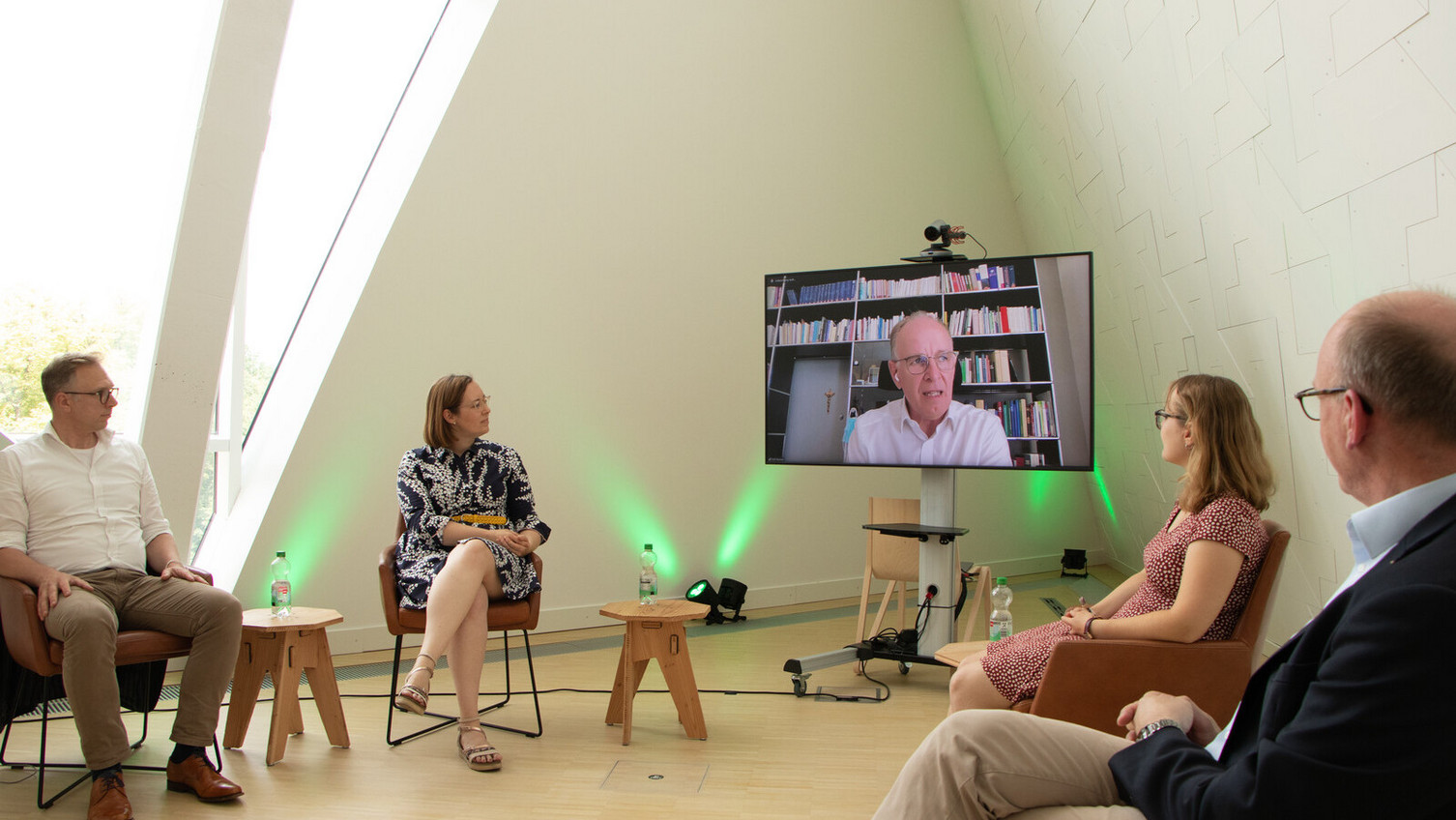Ethics in conversation: Get out, save, share fairly?!
Ethical stages of the energy transition
2022-07-05 "The Room of Silence," noted University President Prof. Dr. Sascha Spoun in his welcoming speech, "is a space for fundamentals." It is a place in the university for interreligious dialogue, ecumenically shared spirituality, in short: multi-perspectivity. Here, on Wednesday, the panel discussion "Get out, save, share fairly?! Ethical stages of the energy transition" took place. The latest edition of the discussion series "Ethics in Conversation", which takes place in the Room of Silence, dealt with the urgent question of how to maintain the energy supply in times of war in Ukraine without having to give up ethical principles. Let me tell you in advance: the problem could not be solved that afternoon. However, that was not the aim. The sometimes lively discussion did, however, make it possible to get to grips with the problem.
The event was moderated by PD Dr. Thomas Kück from the Institute for Ethics and Theology. He discussed with Ralf Meister, Bishop of the Protestant State Church, mechanical engineer Prof. Dr. Felix Kruse (HAW), Prof. Dr. Hannah Trittin, business ethicist at Leuphana and with bachelor student Simone Pankofer. At the beginning of the discussion, the latter pleaded for a "balance between ecology and economy" and thus immediately named the fundamental area of tension in the question of an ethics of energy supply. "Who is going to pay for it?" asked Felix Kruse, calculating the feasibility for the group: In Germany, there are too few hours of sunshine for solar energy over the year. One would have to invest in Africa (2000 hours of sunshine per year). On top of that, this could create a "win-win situation" and tackle problems of global justice. Of course, renewable energies must be used as quickly as possible. But so far, too little has been done.
When asked how a low-income household could still set aside 1000-2000 euros for the gas back payment, Hannah Trittin remarked: "Fairness falls by the wayside there." One has to protect the weakest, she added. But it was a matter of clearly naming the problems, she said, namely: Where are the limits of feasibility? What is indispensable? Who bears the responsibility? Trittin said that new technologies would have to be invented to solve the energy crisis, to which Kruse replied, "We don't have to invent anything. We already have all that." So a lot is already feasible. Kück quoted Luisa Neubauer on this: "Just because the right people are governing doesn't mean we are being governed properly." It is much more a question of political will and organisation and a question of participation and justice: the neologism "fair sharing" already hints at this. It has to be clarified who has to pay what, who bears what responsibility.In terms of responsibility, the Bishop pleaded for an appreciative relationship with nature: "We have to understand creation as the basis of our being". Of course we need the regenerative energies so that we do not destroy our very own basis of life.
Kück pointed out that we could not solve the "dilemma": Freezing in winter would not work because the country would then be difficult to govern, and continuing to use coal power because there is no more gas from Russia would heat up the climate even more. Meister countered: "Excuse me, saying it can't be done discredits all people on this planet who live or have lived in deprivation, including our own grandparents." Meister pleaded for foresight and temporary renunciation. This is always possible. The Bishop was concerned with creating hope. The audience objected that there was no reason for optimism, especially for the present generation. Meister replied that he could understand this completely: "But doesn't the very insight into hopelessness ... lead to movement?"

